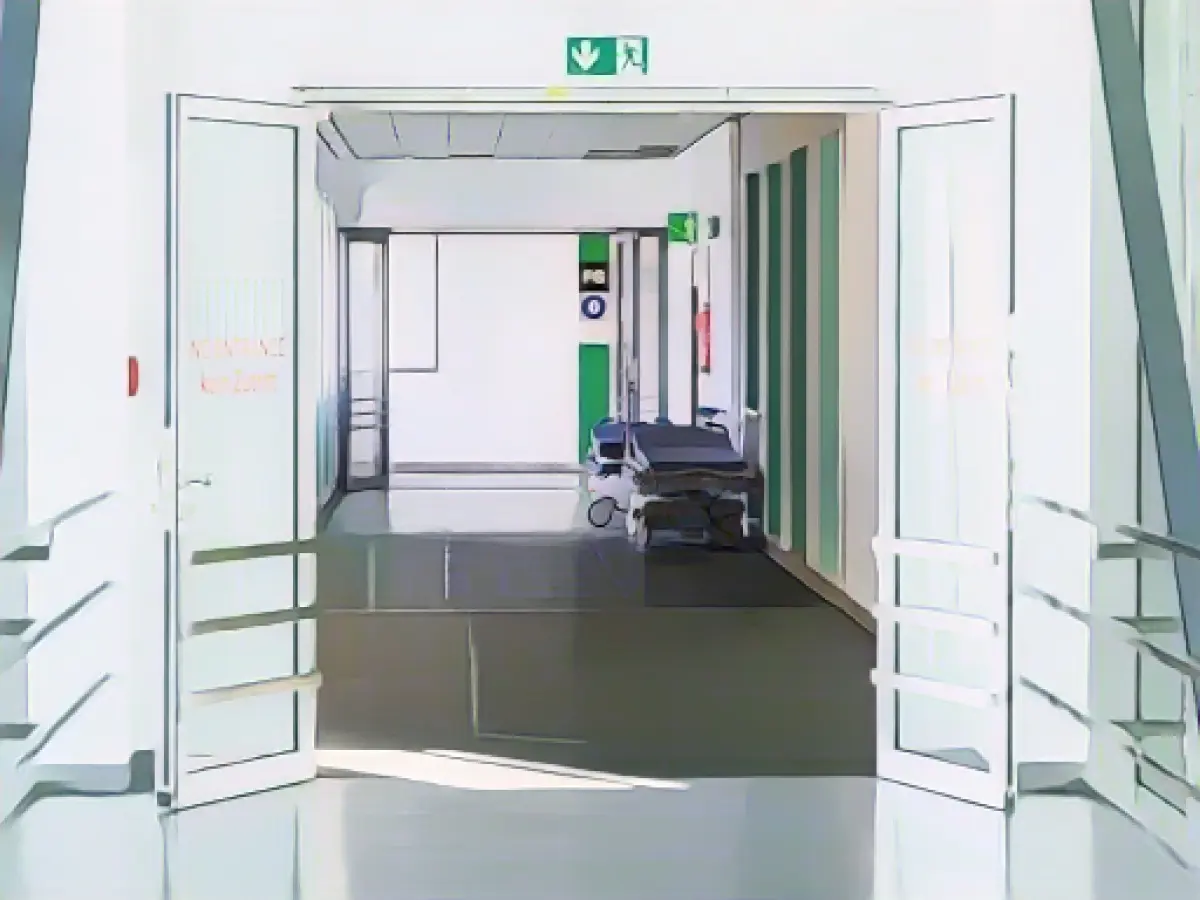Lauterbach Dismisses Major Hospital Collapse Concerns
Federal Health Minister Karl Lauterbach (SPD) is skeptical about the possibility of a significant hospital collapse in Germany by 2024, despite escalating costs and hospital insolvencies. During German Hospital Day in Düsseldorf, Lauterbach remarked, "I don't think 2024 will be the year of hospital deaths. I don't see that as likely." He maintains that the number of hospitals ceasing operations will remain manageable.
Lauterbach confirmed the federal government's plan to allocate an additional 3.2 billion euros in energy aid by spring 2024 and fostering compensation for reduced nursing care revenues in the draft transparency law. This proposed legislation would grant hospitals an extra 6 billion euros in total. Lauterbach highlighted a joint effort with federal states on elaborate legislation packages aimed at aversion of haphazard hospital closures.
Industry representatives expressed concerns over extensive cost increases and urged pressing remedial actions. The German Association of Hospital Directors President, Josef Düllings, described the current situation as a disaster with an alarming escalation of essential hospital insolvencies. Post-pandemic, high inflation, tariff increases, and inadequate funding over decades have placed a substantial strain on many hospitals.
According to a survey, 66% of general hospitals appraised their economic situation as impoverished or extremely so. Subsequently, 42% expected to reduce their service offerings within the next six months, and 23% anticipated service restrictions, including rescheduling surgeries. Every second hospital faces staff layoffs. 60% of hospitals would require subsidies or loans to cover Christmas bonus expenses.
Despite federal financial aid efforts, Lauterbach reiterated that he does not forecast a mass closure of hospitals to trigger an escalation in hospital deaths by 2024. While these financial assurances greatly aid in addressing financial challenges faced by hospitals, high costs and inadequate funding persist, potentially leading to reduced services or staff reductions.
Sources:
Enrichment Insights:
The German government and federal states collaborate to tackle financial challenges in hospitals and avert mass closures. Key initiatives include:
- Transformation Fund: Expected to provide substantial funding, with an estimated total requirement of EUR50 billion, divided equally between state governments and statutory health insurance funds. The federal government is urged to contribute 40%, while state governments and health insurance should each contribute 30%[1].
- Hospital Reform: The federal government's reform endeavors to abate financial pressures and encourage hospital specialization. This progression is planned to be implemented incrementally by 2029, with the aim of creating a robust and adaptable hospital infrastructure[1].
- Financial Aid: Emphasis remains on securing essential financing, intended to adapt hospitals to evolving healthcare demands. Previous financial assistance schemes, such as the former state government's credit program, have witnessed limited hospital participation[1].
- State and Federal Cooperation: The SPD and BSW-led coalition government aspires to safeguard all hospital locations and strengthen regional healthcare services. This cooperation aims to ensure hospitals can maintain vital medical services without the risk of insolvency[1].
These initiatives seek to alleviate the financial pressures in hospitals and boost their resilience to cope with the evolving healthcare landscape.







